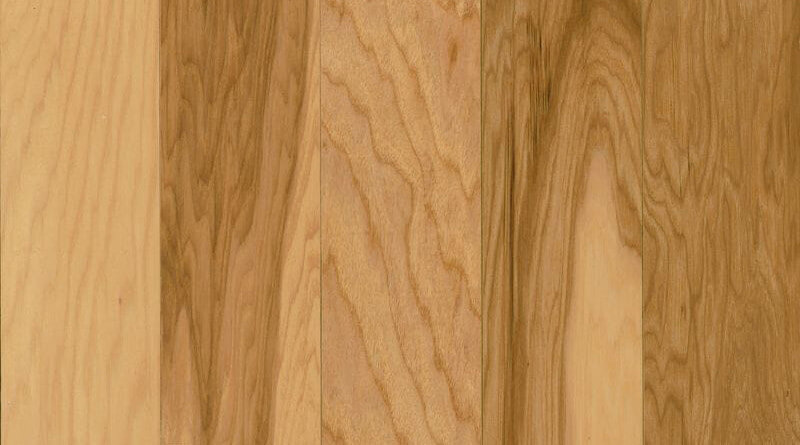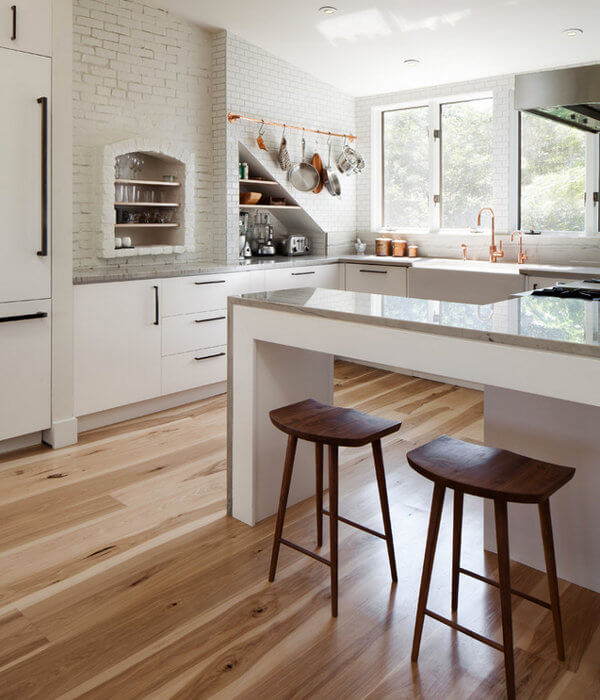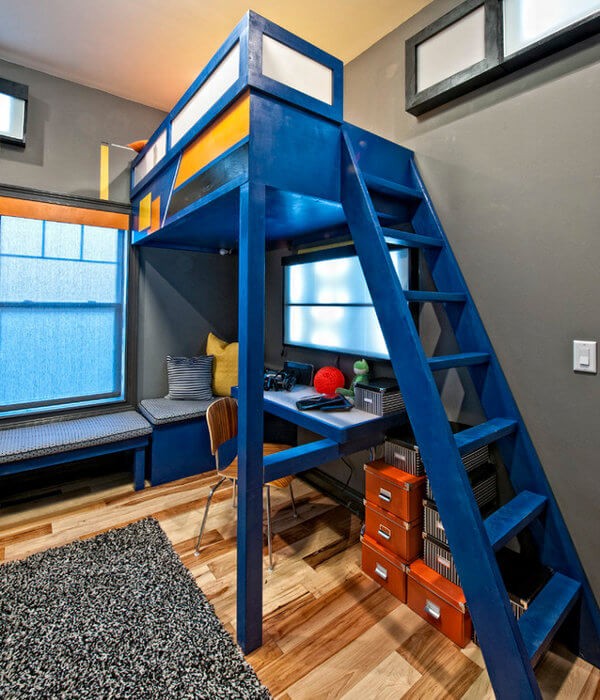Learn About Hickory Flooring: The Hardest American Hardwood Floor at a Great Price
If you’re keen to choose a home grown hardwood floor, but are looking for something with a distinct character, then Hickory flooring might be the best option for you. Whilst growing in popularity, Hickory flooring still accounts for less than 5% of the domestic hardwood flooring market in the USA, making it a lot less common than classic oak and therefore giving you the potential for something a little different. Let’s take a look at all the other qualities of Hickory flooring and see if it’ll be a good choice for your home.
 Source: www.builddirect.com
Source: www.builddirect.com
What is Hickory Wood: And what else is it used for?
Hickory wood, as you would of course imagine, comes from the hickory tree which is found growing natively in several countries including the USA, Canada, China, India and Mexico. There are several different Hickory species, one of which is the Pecan tree which is cultivated for its delicious pecan nuts!
But, as we will see later on, hickory is also prized for its strong, shock resistant, dense wood which makes it an ideal wood for several uses including:
- Durable flooring
- Handles for tools such as hammers and axes
- Sports equipment like lacrosse sticks, golf club shafts, bows and paddles
- Other resilient wooden items such as walking sticks and drumsticks
Another important use for hickory wood, especially in the Southern States, is for smoking, curing and barbecuing meat: the dense wood makes for a slower, more regular burn and adds a delicious flavor!
Hickory Flooring Options
As with almost all wood flooring, there are three main types of hickory flooring for you to choose from.
- Solid Hickory flooring is usually 3/4” (19mm) thick, with plank widths ranging from 3” to 5”. Solid hickory is usually available in standard smooth, wire brushed and hand scraped finishes.
- Engineered Hickory flooring refers to a composite construction of a thin wear layer of real hickory wood adhered to a plywood base. Engineered hickory tends to come in different thickness depending on the manufactures, most often either 3/8” or 1/2” thick. Plank widths vary too, mostly 5” but we are starting to see engineered hickory being produced in wider planks of up to 7.5” or even 8”. As with solid flooring, a variety of finishes are available for engineered hickory including hand scraped and hand tooled.
- Laminate Hickory flooring is where a sealed photographic image of hickory wood is adhered to a composite wood base. Laminate planks tend to be around 8 – 12 mm thick, and vary in widths from as little as 3” to up to 8” depending on the manufacturer.
 Source: www.hullforest.com
Source: www.hullforest.com
In this modern kitchen wide planks have been finished with a very light sealant to bring out the natural varied tones of the hickory flooring.
Hickory Flooring Look, Colors and Finishes
Untreated hickory has quite a strong color contrast, going from a gorgeously deep brown heartwood to a creamy white sapwood. But as hickory is also quite good at retaining stain, you’ll find that most manufacturers offer hickory flooring that has been pre-stained, thus offering a large range of colors and looks, and toning down the contrasting colors of untreated hickory.
In terms of style, because of how it’s made, the photographic element of laminate allows for the greatest artistic potential; you can find many hickory laminates that have characterful painted, weathered and distressed looks.
Most solid and engineered hickory flooring tend towards either classic or rustic texture finishes with different depths of color added, ranging from light caramel tones, through popular gray/ greige tones, to deeper coffee and chocolate tones.
All good quality hickory flooring will also be finished with a clear final sealant – often a polyurethane – to protect from everyday hazards such as spills and dirt.
The main aspect to note about the overall look of hickory flooring is that hickory has a distinct, fairly dense grain that is more prominent than maple flooring but not as strong as oak. The dense grain gives hickory its lovely character, but it can look overly busy if you opt for narrow planks. Planks width of 5” and above tend to give a more unified overall appearance.
Hickory Hardness & Durability
Apart from its fine looks, one of the top qualities of hickory hardwood flooring is that it is the hardest domestic wood on the market, with a Jenka ranking of 1820 – that’s quite a lot harder than red oak which has a ranking of 1290. This makes hickory extremely durable and much less prone to dents than the softer hardwoods such as maple or walnut flooring. If you have a houseful of kids and pets, then hickory in an excellent choice!
 Source: www.amberflooring.com
Source: www.amberflooring.com
Hickory is good choice for a family home – here the random width planks have been stained a deeper brown to work with a traditional décor.
Leading Hickory Flooring Brands and Prices
Most flooring retailers will stock some hickory planks. Here are some of the best brands to look out for and the kind of prices you can expect to pay:
- Solid Hickory flooring: Top brands include Bruce, Armstrong, Shaw Floors, Mohawk, Home Legend, Jasper and Walking Horse with prices ranging from $3 (for unfinished, natural, solid hickory) to $9 per square foot.
- Engineered Hickory flooring: Brands with good reputations include Bruce, Armstrong, Shaw Floors, Mohawk, Home Legend, Heritage Mill, Millstead and Jasper with prices on average between $2 to $7 per square foot.
- Laminate Hickory flooring: Brands to consider include Bruce, Armstrong, TrafficMASTER, Lamton, Mohawk and Pergo with prices from $1 to $5 per square foot.
 Source: mooretate.com
Source: mooretate.com
Treating hickory with a whitewash finish, as above, gives it a softer look whilst still allowing the wood tone variations to be seen.
Hickory Wood Flooring Pros & Cons
All hardwoods have different pros and cons, so it’s important to consider all aspects of hickory hardwood in relation to your household and local environment.
Hickory flooring advantages:
Color variety and style – Hickory is good at retaining stain which means that there are lots of color options available already stained by the manufacturer, or you can use a pro staining expert to mix a custom color for your home (note: see disadvantages below).
Styles-wise, hickory is quite versatile and can be used just as well with informal, rustic, farmhouse décor as with more formal, structured interior designs. The large variety of hickory flooring styles, finishes and colors is a great advantage.
Options – Hickory flooring is produced in solid, engineered and laminate in a variety of plank widths and finishes.
Durability and wear – As mentioned above, one of hickory’s best selling points is that it is extremely durable and great for busy households.
Easy maintenance and low costs – As with most hardwood floorings, once properly sealed, keeping hickory flooring clean is fairly easy – regular sweeping or vacuuming and the occasional mop should suffice.
As with all hardwood floors, to keep it at its very best you should consider refinishing your solid hickory floor every 5 years or so. For engineered hickory flooring, opt for one that has the thickest wear layer and which therefore can be refinished at least once in its lifetime.
Cost – Because hickory is not as common as oak, it is a bit pricier, but still quite affordable averaging at around $4 – $5 per square foot for a decent quality product, with much lower prices for laminates.
Resistance to water and mold – Hickory is not known for being particularly resistant to mold or water, but like many hardwoods there are enough options for most home environments: choose engineered hickory for rooms that are below grade (i.e. in the basement) and solid or engineered for above grade installations.
Note that if you are particularly concerned about moisture levels and rot in your area, then we do not recommend hickory.
Sustainability and Eco-friendliness – A bonus advantage of hickory is that it is grown and manufactured domestically in the USA, so it is a greener option than an exotic hardwood. Ensure that your hickory is sourced from a sustainably farmed plantation by checking for its FSC certification.
Versatile installation – Hickory hardwood flooring installation options are quite varied depending on the manufacturer and product, but include nailing, gluing and floating the material.
Hickory flooring disadvantages:
Aesthetic concerns – In its natural state or with just a light stain or clear finish, hickory wood tones are very varied with strong contrast between the heartwood and the sapwood; this can give a lovely rustic feel, but is not to everyone’s tastes. Stained hickory flooring generally removes this potential disadvantage by harmonizing the contrasting tones. Also, as mentioned above, the dense grain in hickory can make a floor look too busy if you choose thinner planks – minimize this by opting for wider planks of 5” plus.
Not DIY Installation friendly – Because of the great hardness of hickory, it can be rather difficult to cut and sand for the average DIYer. Using a pro installation team with the best tools and equipment should be factored in.
Tricky to Custom Stain – Again because of the density, specialist skills are required to correctly stain hickory – the wood needs to be water popped in order for the stain to fully absorb. Another reason to look to a pro for this, or to opt for pre-stained and prefinished hickory.
Cost – Whilst hickory hardwood flooring is not the most expensive on the market, the hardness and density means you are more likely to choose a prefinished product and have recourse to a professional for installation, making the overall cost of fitting hickory flooring higher than hardwoods that are easier to install.
Warping – Hickory can be prone to warping, especially if the installation process is rushed and the wood isn’t allowed to acclimate to its surroundings beforehand.
 Source: www.homesbymonticello.com
Source: www.homesbymonticello.com
Hickory flooring provides a warm contrast to the gray walls in this teen’s bedroom.
The article or page: Hickory Wood Flooring: Pros & Cons, Reviews and Pricing first appeared on the Home Flooring Pros website. Please update your links and bookmarks accordingly.
from Home Flooring Pros http://ift.tt/2rOLKS0
No comments:
Post a Comment